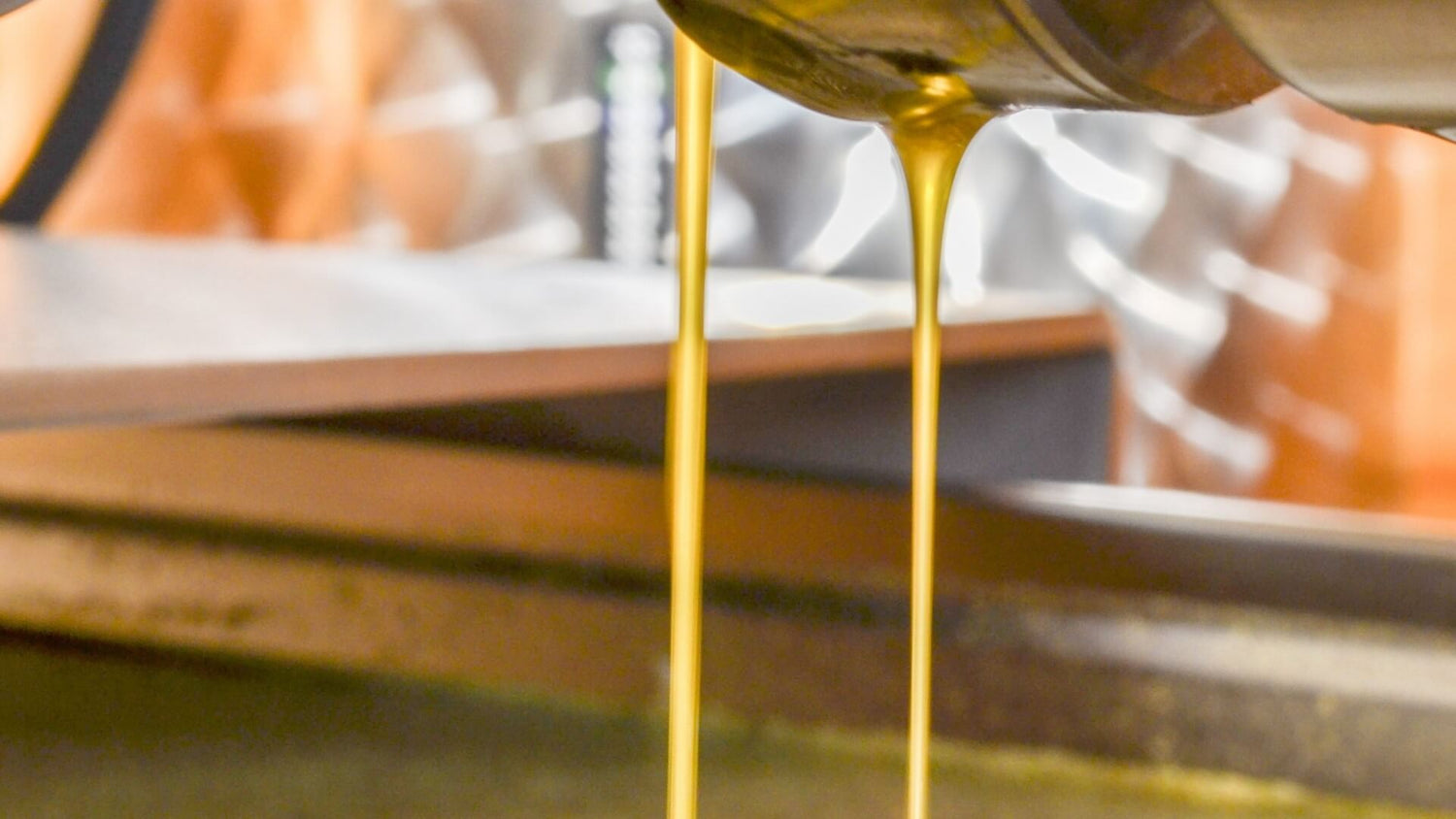What is cold pressing?
In the language of cosmetics, a cold-pressed oil is first and foremost a nutrient-rich oil. It is a guarantee of quality. The term cold-pressed means that the oil is extracted at a low temperature to preserve the plant's active ingredients.
Oil extraction

Did you know that there are several techniques for making juice? The juice extractor, the blender or the hydraulic press.
Well, it's the same for oils: there are several methods of making oils, whether they are:
- mineral oils obtained from petroleum and its derivatives or other fossil materials such as coal,
- vegetable oils obtained by the expression of oleaginous plants such as olive oil,
- or essential oils obtained by steam distillation of an aromatic plant such as mint or by cold pressing for citrus zest such as orange.
As with olive oil and its first pressing, the quality of a vegetable oil is determined by its method of manufacture, that is, of extraction.
The extraction of vegetable oils from oleaginous seeds and fruits (sunflower seeds, rapeseed, hemp, etc.) by first cold pressing is the most traditional mechanical means. After sorting, the fruits and seeds are subjected mechanically to “cold” pressing, that is to say at room temperature. It is a natural method of extracting oil from a raw material that involves high pressure extraction in a single step. In this process, a screw press is used to push the seed into a barrel-shaped cavity. The screw compresses the seed and the oil comes out through the openings, while the pressing residues (cake) remain in the barrel. The temperature reached during pressing depends on the hardness of the seed. The harder the seed, the greater the pressure required to extract the oil, which causes greater friction and results in higher temperature.
The cold-pressed oil used to formulate our skincare products is made using:
- a hydraulic press,
- an impact press,
- or a worm screw press.
The oil obtained is this first natural juice, containing all the essential nutritional principles. Virgin, it does not undergo any chemical treatment or refining. The only operations authorized to purify the oil are centrifugation and filtration. When these criteria are specified on the label, you have an excellent quality oil in your hands.
A gentle manufacturing process for a cold-pressed oil
There are refined oils and cold-pressed oils. They are distinguished by their manufacturing process.
Refined oil
Refined oils are subjected to a chemical treatment which allows them to be preserved. They can be heated to a higher temperature and their taste is generally neutral.
Cold pressed oil or virgin oil
Cold pressed oils are obtained by a very gentle process which consists of extracting the oil from plants without heat treatment. In general, they are then simply filtered and bottled, without undergoing further refining.
The Benefits of Cold Pressed Oils
- The advantage of cold-pressed oils (eg rapeseed oil) is their strong taste. In addition, they retain their fat-soluble vitamins ( eg provitamin A and vitamin E). Cold-pressed oil is used in cold dishes (eg salad dressing) and to flavor hot dishes and desserts. For cosmetology, cold extraction, unlike all other methods, therefore guarantees a pure oil. Indeed, it keeps all the properties of the plant. Moreover, the oil obtained will be more effective, because the plants do not undergo any transformation. The essential nutrients of the oils (fatty acids, vitamins, various active ingredients, etc.) will not suffer any loss and will keep their structure intact. It is therefore a major advantage in cosmetics, because the raw oil will bring all its virtues to the product in which it will be contained.
- The disadvantage of cold pressed oils is that they cannot be heated. They are generally not heat stable and quickly release harmful substances due to their lower smoke point. Cold pressed oil is a bit more expensive than refined oil, partly because the pressing is not as efficient. Once opened, it should be consumed within 4-6 weeks. For cosmetology, the problem is less. Simply store the oil at room temperature, in a dry place away from UV rays and light. Significant thermal shocks must also be avoided.
- Simply store your oil at room temperature, in a dry place, away from UV rays and light. You should also avoid severe thermal shock.
The choice of a refined or cold-pressed oil therefore depends above all on the use you want to make of it.
Why is a cold-pressed virgin oil better for the skin?

The term “ cold pressed ” implies that the oil has been obtained from the first press, without excessive heat or any other chemical substance that would lessen its fragrant aromas and properties. These oils have amazing benefits for your health, they retain all their original nutrients and unlike so-called hot-pressed oils, this makes them healthier.
This method of extraction preserves all essential fatty acids , antioxidants and vitamin E. The active molecules of these oils remain intact, justifying the cost of their use in the formulation of natural cosmetics.
In other words, you will have an oil rich in antioxidants capable of nourishing your skin thanks to its high fatty acid content . Be careful, fatty acid does not mean “affected” or “finished” fatty. At SOWÉ, be sure that all our oils are “dry”.







